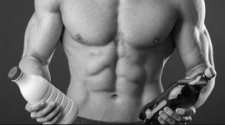Alcohol on Athletic Performance - Effects of Alcohol on Training

Current Sports Medicine Reports, 5:192-196, 2006
Alcohol is part of the culture in almost all sports. In sports fans, the tailgate party is a hallowed tradition before football, soccer and baseball games. Many athletes use alcohol to celebrate victories or compensate for defeats. Some athletes have problems with alcohol and
often compete or practice with it in their systems. In a review of literature, British researchers concluded that alcohol negatively affects athletic performance. Alcohol has little effect on strength, but it may severely interfere with endurance, mental function and sports skills.
Alcohol interferes with sugar metabolism in the liver, so it interrupts glycogen synthesis, which is critical for optimal recovery after exercise.
Alcohol is a diuretic (promotes water loss), so it causes dehydration and may impair heat tolerance and temperature regulation. Chronic drinkers have twice the injury rate of nondrinkers. It triggers muscle inflammation and muscle and joint pain that interferes with performance
during training and competition. Alcohol tolerance, drinking experience, environmental temperature and hydration level affect the body's response to alcohol at rest and during exercise. Serious athletes should minimize alcohol consumption. It promotes fat deposition, which is the
kiss of death for bodybuilders.